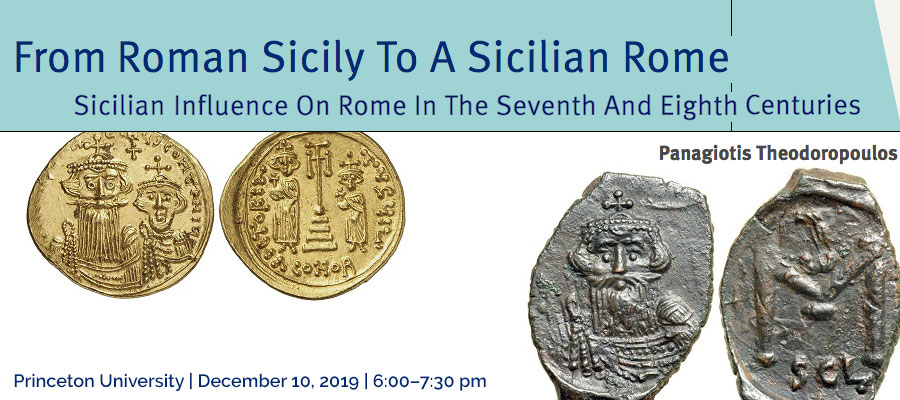From Roman Sicily to a Sicilian Rome: Sicilian Influence on Rome in the Seventh and Eighth Centuries, lecture by Panagiotis Theodoropoulos (Princeton University), December 10, 2019, 6:00–7:30 pm
Respondent: Helmut Reimitz, Princeton University, Department of History
This paper will discuss the relation of power between Sicily and Rome in the seventh and eighth centuries. The island was for centuries one of the main grain suppliers for the old capital and a place where Roman aristocrats held large estates. However, in the second half of the seventh century the social vacuum caused by the disappearance of the Western Senatorial aristocracy was covered by new elites, which were the result of a merge of the descendants of the old senatorial class with Greek-speaking office-holders from the East. The most important center of this new social group was Sicily, the residence of the Byzantine emperor from 663 to 668. These men sought to influence the most important Roman institution in the West, namely the Papacy, in order to promote their political and financial interests. Their effort resulted in a series of Sicilian popes, which indicates that the Sicilian elites managed to reverse the traditional relation of power between capital and province.
Panagiotis Theodoropoulos is pursuing research on the social and administrative evolution of the Byzantine Empire in the seventh and eighth centuries. He has a particular interest in the study of Byzantine Italy and the papacy in the aforementioned period. He received his B.A. in Classics from the University of Athens (2011) and M.A. in Late Antique and Byzantine Studies from King’s College London (2014). He holds a Ph.D. in Modern Greek and Byzantine Studies from King’s College London (2018) with a dissertation entitled “The Riddle of the Greek Popes: Social Change and imperial Influence in Seventh and Eighth-Century Italy.”
